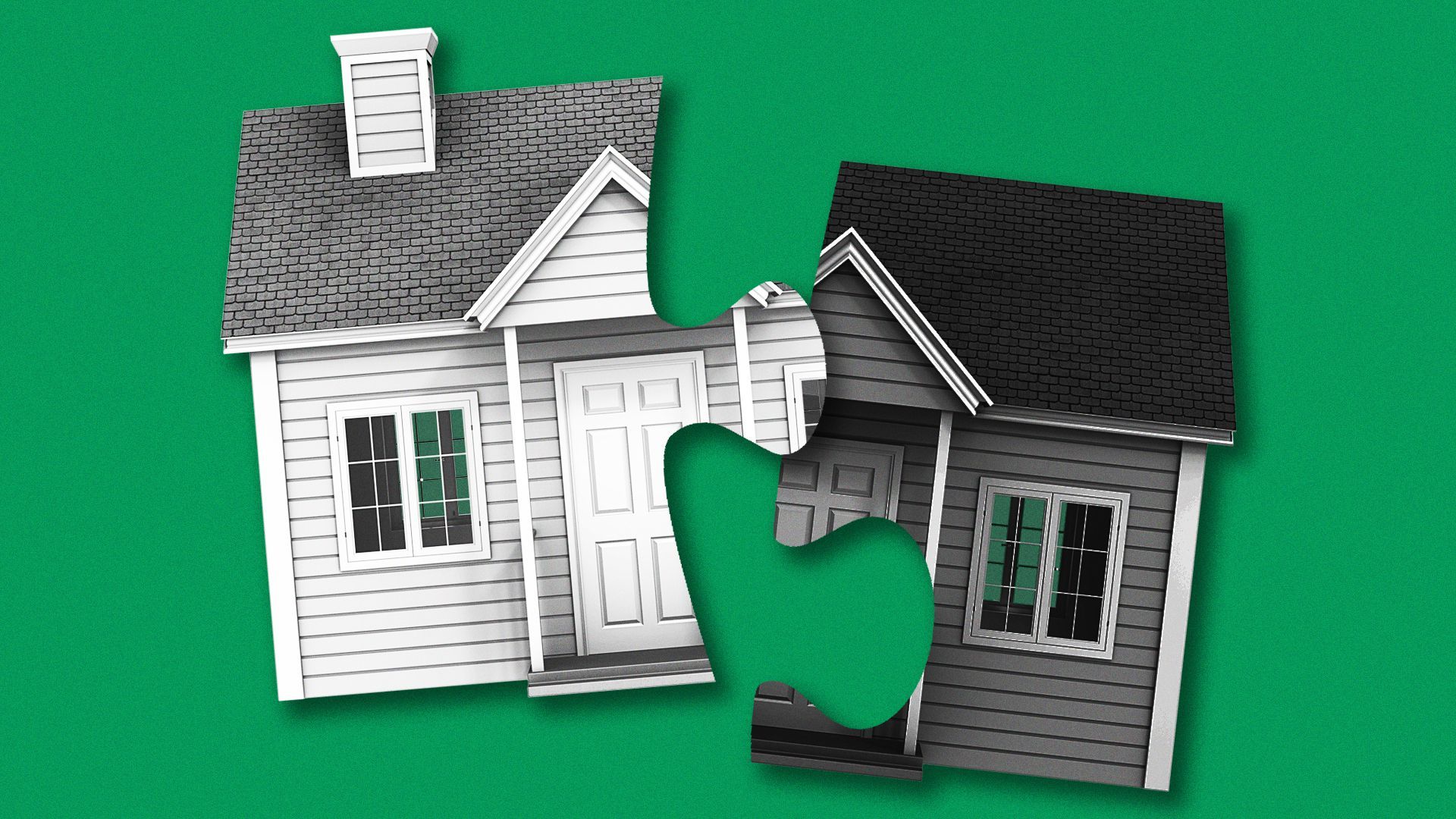Philly's eviction diversion program will stay through 2022
Add Axios as your preferred source to
see more of our stories on Google.

Illustration: Maura Losch/Axios
Philly's eviction diversion program will remain in place through the end of 2022.
Why it matters: The nationally recognized initiative that was set to expire this month is credited with reducing evictions by 75% compared to pre-pandemic levels. This is a step toward making it permanent.
- "We look forward to a new era that takes us out of an emergency and into a permanent approach towards seeing evictions as a course of last resort and not the first and default option," said Councilmember Helen Gym, who introduced the bill to keep the program.
Driving the news: The Philadelphia City Council voted unanimously Thursday in favor of continuing the program, which was created in September 2020 as an emergency housing protection.
Details: The legislation doesn't outline a permanent version of the program. Instead, it allows the city to keep it in place without permission needed from the Pennsylvania Supreme Court.
- Up until now, the court has overseen the temporary program on an emergency basis. That is no longer necessary and the program is now law in the city code.
State of play: Currently, landlords seeking to file an eviction must first sign up for the eviction diversion program and apply for city rental assistance.
- The program encourages the landlord, the tenant and a mediator to resolve disputes before going to court.
- It helps tenants avoid having court filings on their records, which can negatively impact them getting housing in the future.
By the numbers: So far, nearly 2,500 landlords and tenants have participated in the program. About 93% reached an agreement or are continuing to negotiate.
- Mediation is typically scheduled 30 days after a landlord signs up.
What to watch: Philly is running out of emergency rental assistance money despite getting an extra $35 million in federal aid in October.
- The city hopes to have enough to last through the end of the month, city spokesperson Jamila Davis told Axios.
- Philadelphia has requested $90 million from the state and $395 million from the federal government for additional rental assistance.
Of note: As of last Friday, Philadelphia paid out more than $241 million to more than 38,000 households. Nearly 28,000 applications received haven’t been reviewed yet.
Between the lines: Paying missed rent in installments is the primary tool used in mediation, according to Rachel Garland, the managing attorney at Community Legal Services.
- But others rely on emergency rental assistance, which is up in the air for many residents.
- The program will adapt its mediation techniques based on what's available.
What they're saying: "What makes it a unique model nationally is that it requires diversion, it requires pre-filing, and it involves the support of housing counselors. All three of these combine to ensure that diversion is as stabilizing as possible for landlords and tenants," Garland said.
The Pennsylvania Apartment Association supported the bill, but wants shorter waits for mediation.
- "We're hoping to find a middle ground that is beneficial to both parties," said Andre Del Valle, the association's director of government affairs.
- He also told Axios he is cautiously optimistic about more rental assistance coming.
John Mitchell, a tenant who went through the program after losing his restaurant job, testified last week in support of the bill.
- "I was barely scraping on my bills and food. If I didn’t have this mediation program, it would have caused a very traumatic experience in my life," he said.
Editor's note: This story has been updated with the results of the City Council's Thursday vote and reaction.
